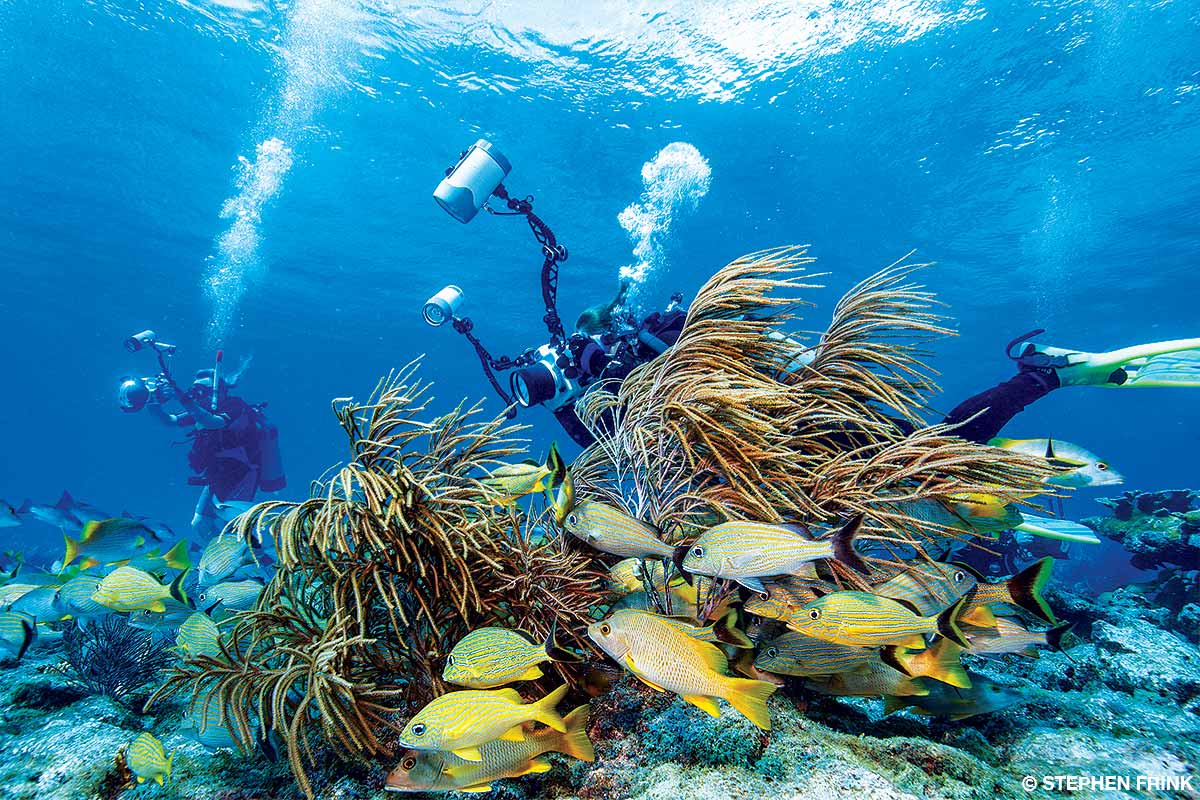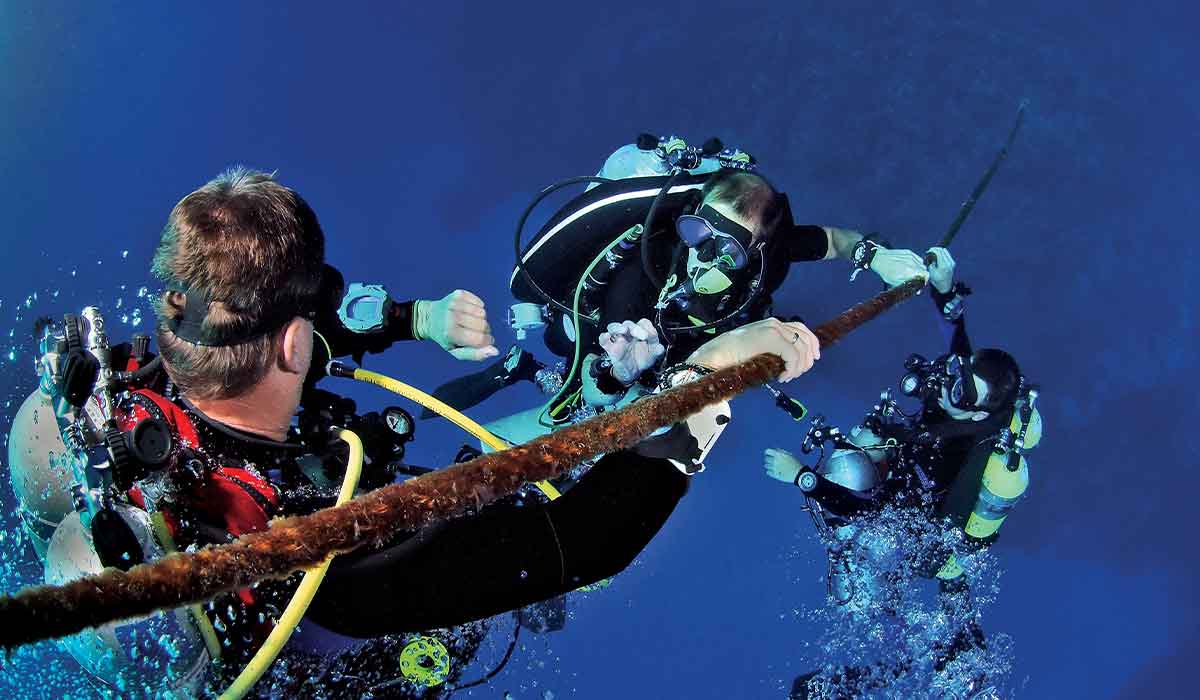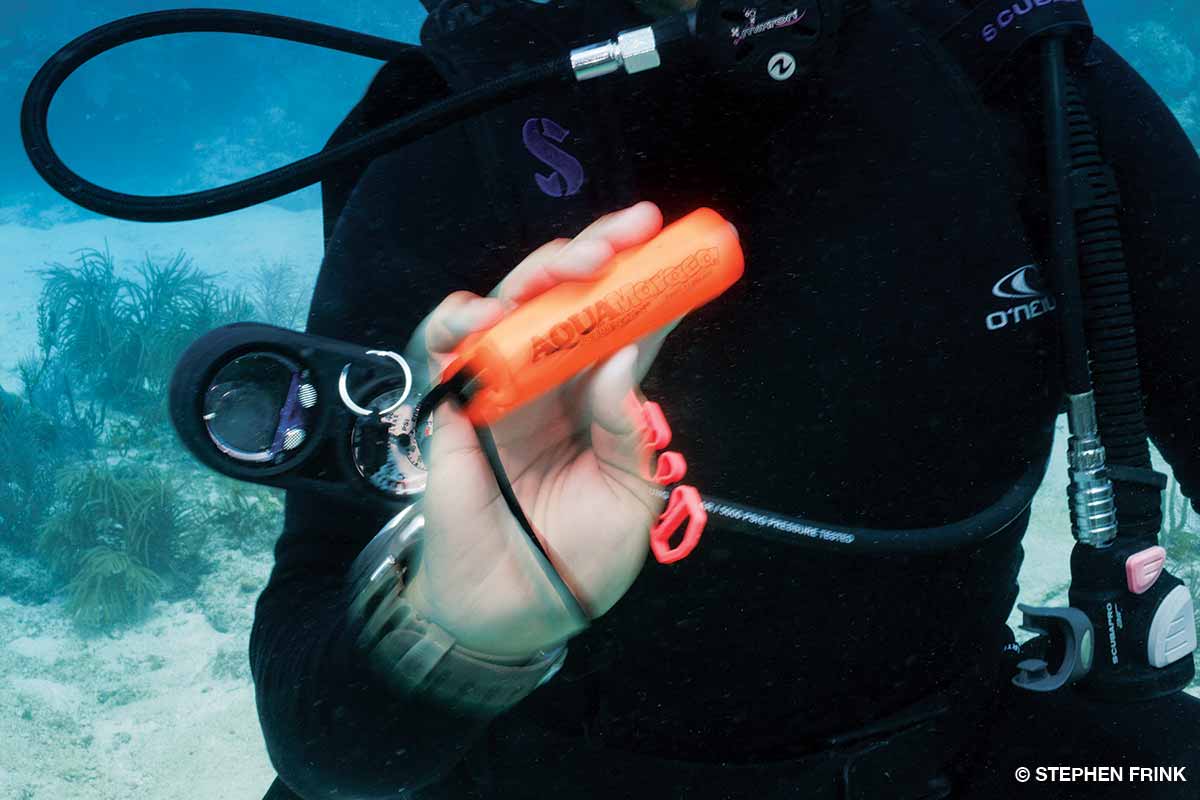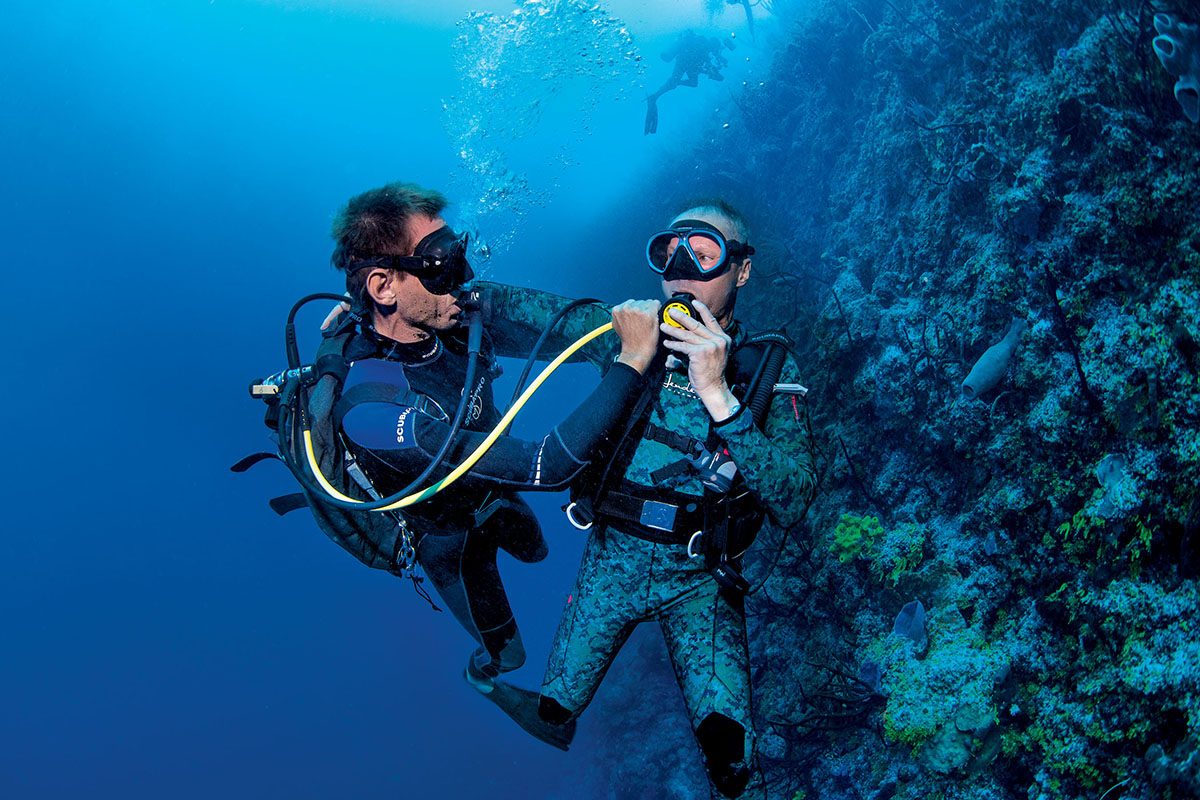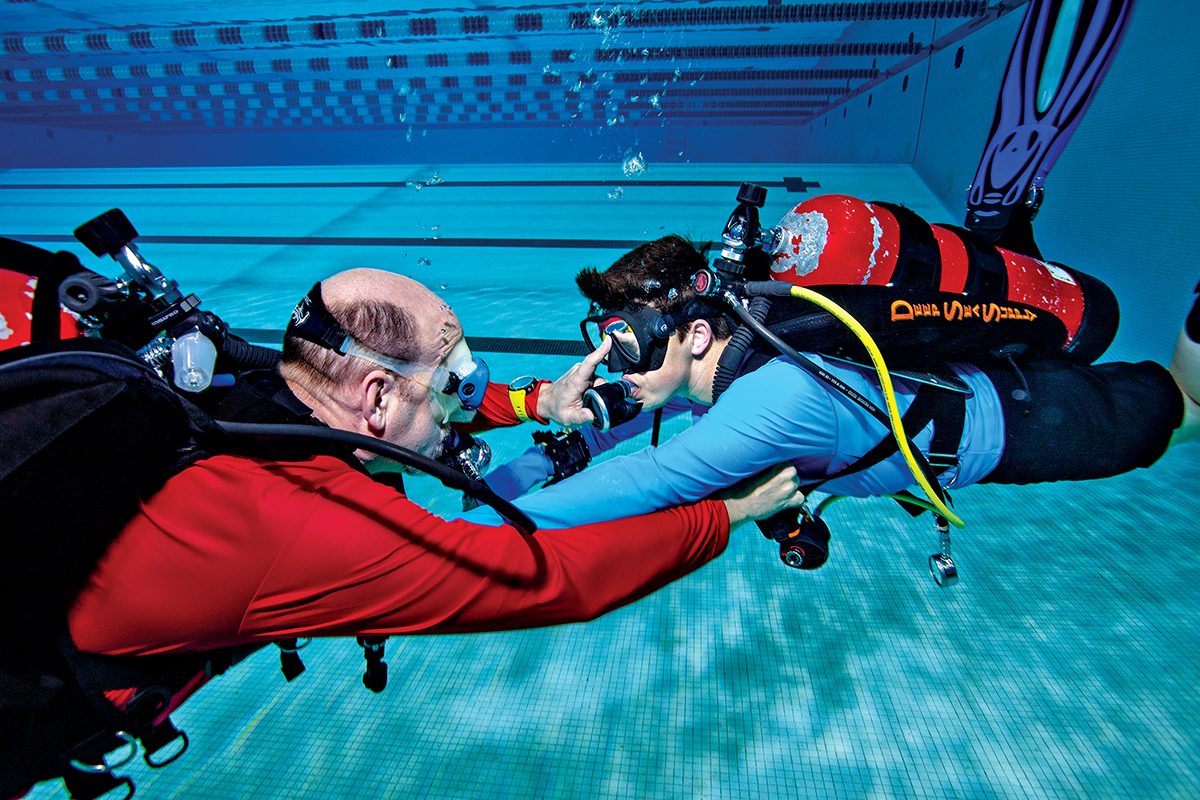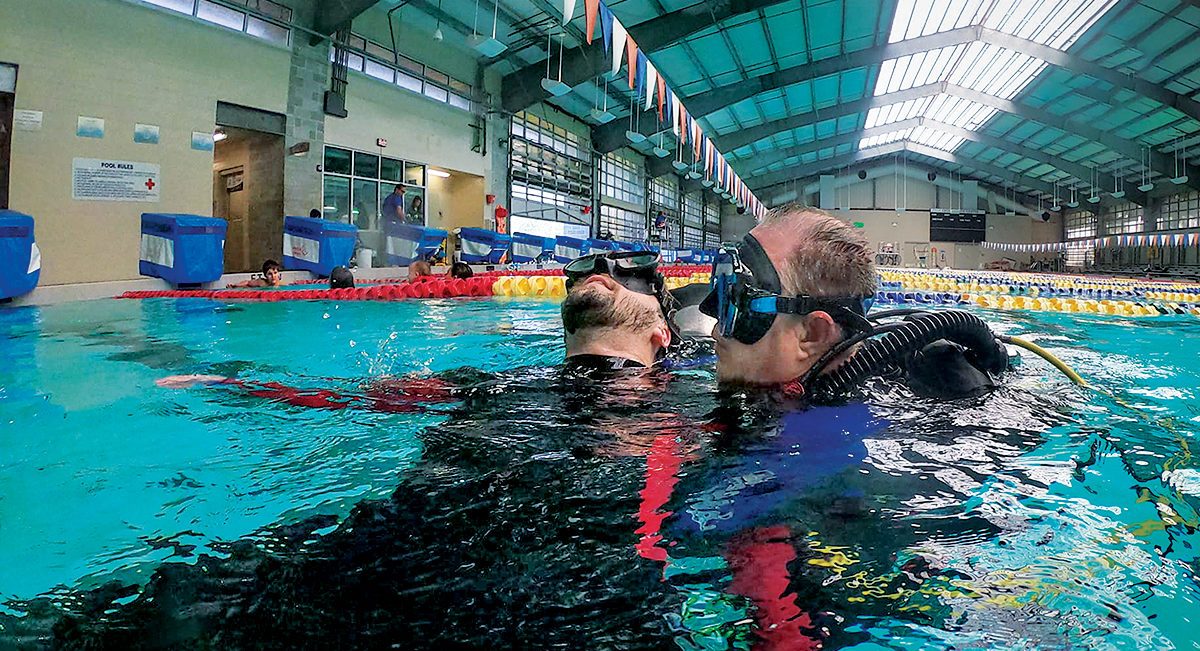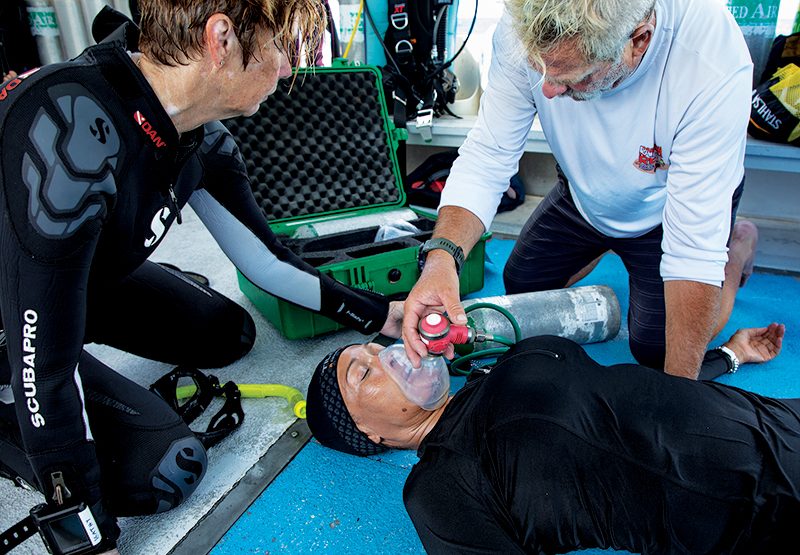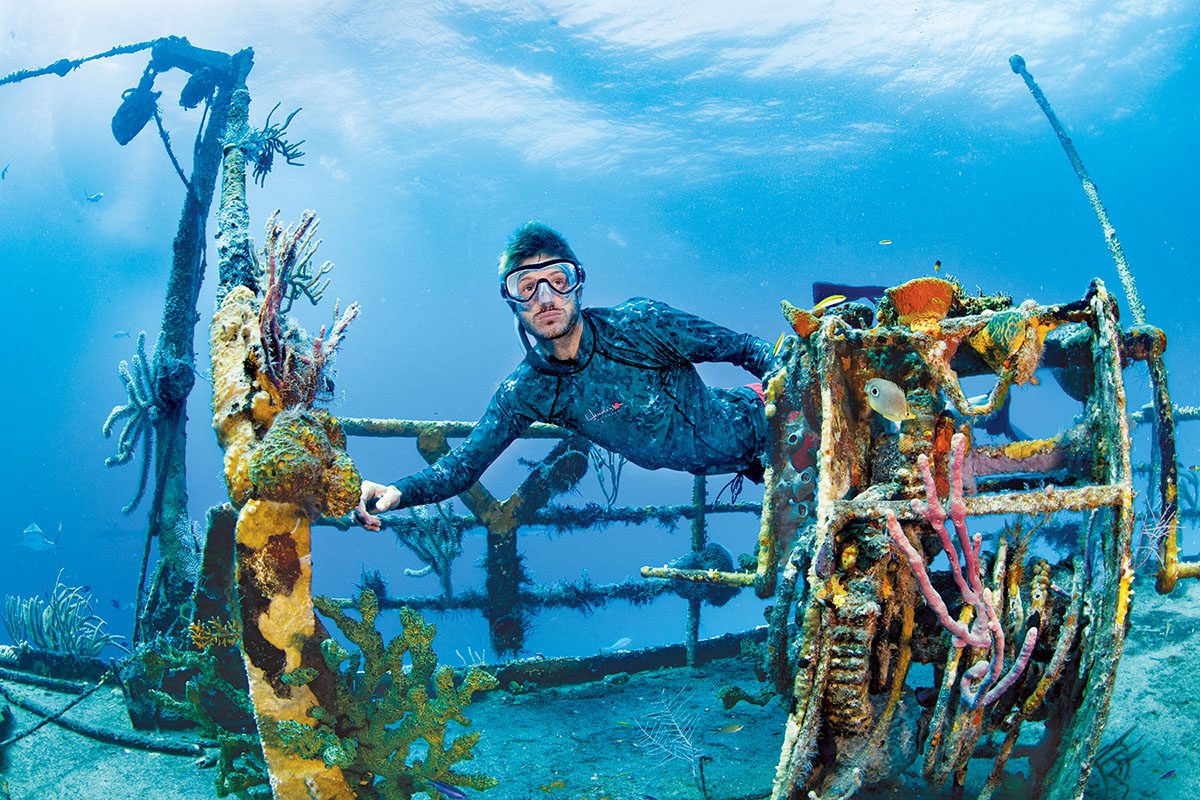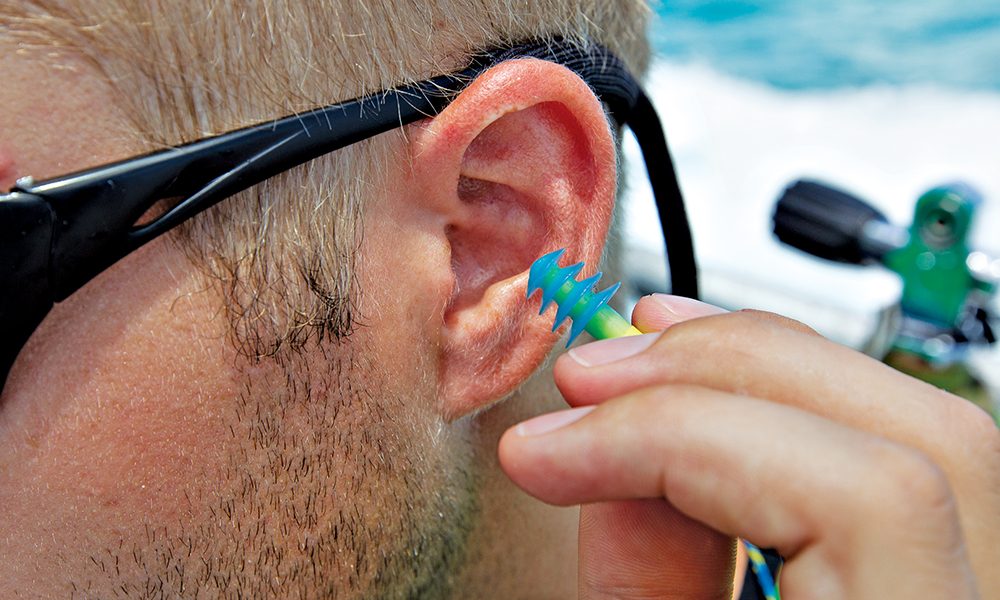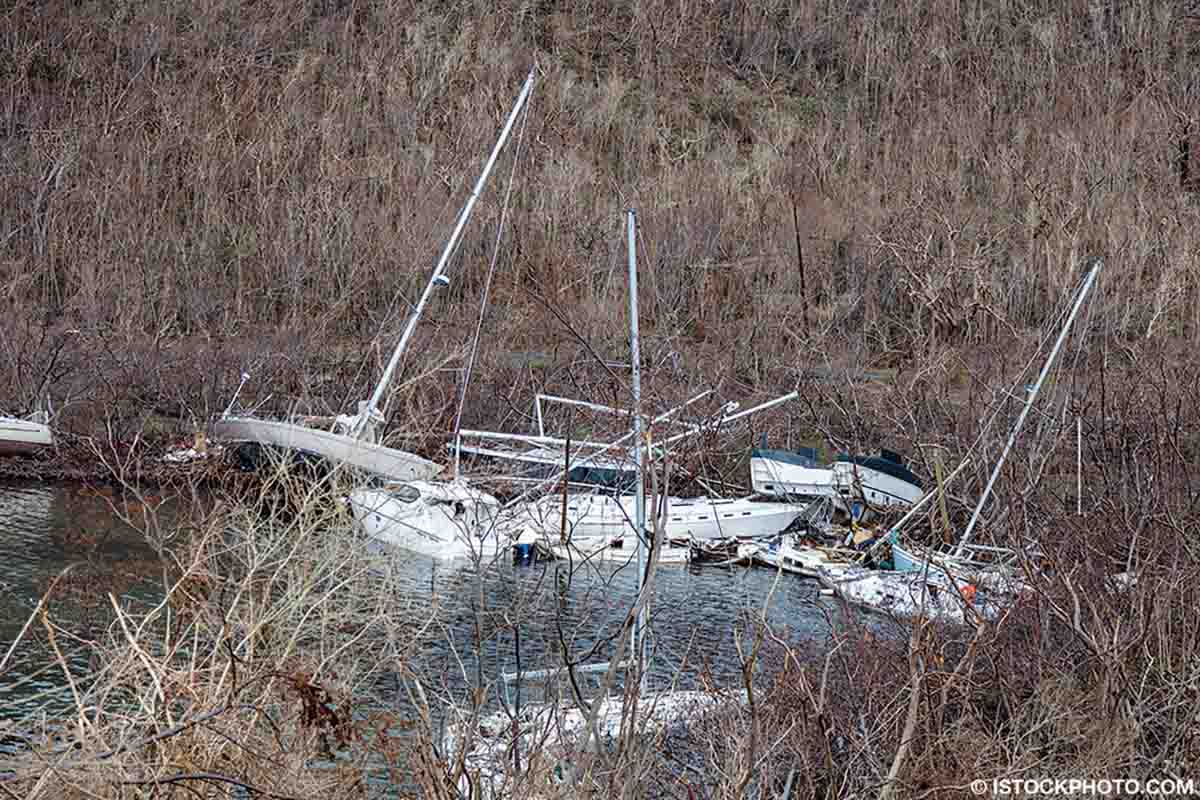Pulmonary barotrauma can occur in a shallow swimming pool if a diver holds their breath during ascent or inadvertently floats to the surface while holding their breath. Most dive-related pulmonary barotraumas occur in compressed-gas diving due to pulmonary overinflation during a breath-hold ascent. Pulmonary barotrauma can occur even with normal breathing if there is an obstruction in the bronchial tree that prevents one lung segment’s normal ventilation.
Divers have become more susceptible to stings and other injuries when trying to grasp permanent mooring lines. Learn why this has become a problem and how to manage injuries.
Audible cues and signals can get your buddy’s attention, signal a group of divers or indicate a problem you can help address. Even though we may dive to escape the noise of everyday life, we need to pay attention to the sounds around us. Doing so could make your dive even more special because your buddy got your attention to see something remarkable — or you may even save a life.
DIVING INHERENTLY CARRIES AN ELEVATED LEVEL OF RISK because humans cannot survive underwater without specialized equipment. When things go wrong, an effective rescue is vital for a favorable outcome. Most […]
THE DIVE INDUSTRY IS FULL OF DEBATES. Should you use a jacket-style, back-inflate, or backplate and wing buoyancy compensator? A canister light or a cordless light? A weight belt or integrated weights? Regular fins or split fins?
WHEN ASKED TO DESCRIBE THEIR FAVORITE COURSE, many divers will discuss the challenges and triumphs they experienced during their rescue class. Instructors often describe rescue as the most rewarding course […]
Being involved in a traumatic event can take a toll on everyone: dive professionals or rescue divers who perform a rescue, lay providers who help with CPR and first aid, and dive buddies or bystanders.
Interest in breath-hold diving, also known as freediving, has grown exponentially over the past decade. Most individuals who enjoy watersports have held their breath underwater at some point, but most do so without formal training or awareness of the known dangers despite the ready availability of this lifesaving information.
A TOPIC THAT COMES UP FREQUENTLY when discussing dive safety is the use of earplugs. Are they safe to use while diving? Does DAN have any recommendations?
When a disaster strikes, are you prepared? Whether a natural disaster like a hurricane strikes or the location is experiencing social turmoil, have plans ready so you know your next steps.
